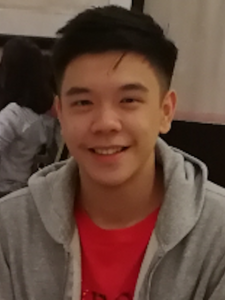Four from the Graveyard
[creative nonfiction]
I.
Back when we used to live in the bungalow next to the graveyard, I would have a ritual. Every night after dinner, I would sit on Yeye’s rocking chair on the veranda, watching for any sign of footsteps. Sometimes, it was the tent that I noticed first, swathed with fairy lights behind the bamboo trees. The minutes that passed by were sudden. The hunched figure’s movements were hurried. Any other new observation, any means of understanding who this person was, marked the ritual complete. Yeye kept telling me it was useless. All there was to know was already spread through fairytale gossip over tea and mahjong. The man sells carvings made from bone. He steals them from under the tombstones.
“Xue shi ruo,” Yeye would remind me. Blood is weak. It dries up with the muck of the soil, and what remains to tell a story after thousands of years are the shards of bone. In Chinese culture, being skinny was something to be proud of. Bones looking as if they were threatening to break the surface of skin was a standard of beauty. As if the velvety white substance symbolized the qualities of a pearl. But to me, I see the paleness and emaciation of a dead body.
II.
The winding road that led towards the dead bodies removed me from the heat of a Guangzhou summer. It was the Qingming festival, and as we sat in the rickety tricycle that would bring us to our destination, in our hands we held the straw broomsticks to sweep the graves. The offerings of joss paper and oversized baozi nestled in our laps.
At one point, I started to think that it was a bad decision to come. Under Yeye’s breath, I heard him whisper the words “wo bu pa” over and over again until the syllables started blurring into each other. I asked him what he wasn’t scared of, but he ignored me, instead, looking down at his hands rolled into fists. In China, you are expected to conceal your emotions. Sometimes, it helps to comfort yourself with a fictitious, whimsical story on death, like that of the bone carver. But when you are helpless, lost in the sea of your emotions, there is nothing left to do but to let the waves pull you down. In a way, it’s another form of a burial.
III.
Mid-afternoon: two more people came by to pay their respects. They looked like lovers, and as they recited the things they remembered about the dead body, the more I realized how much we had in common. The improvisations on the erhu or the love for fried rice or the mahjong games that would last until midnight. I wondered if as they looked at me, they would also see the same pair of hazel brown eyes of their former friend staring back. Blood is what made us related. It is what allows a dead body to walk on two legs and breathe so that after a thousand years, its personalities and stories will live on.
In China, you are expected to conceal your emotions, but at the same time, you are expected to know when to say “wo zai zheli.” I’m coming to think that these three words—“I am here”—are enough to save someone from this sea of emotions. Even if I too am pushed in eventually, I will see the other bodies in the waters. We will grip each other as we topple, and it will surprise me how smoothly we can carry each other’s bodies above the crests.
IV.
“Xue shi ruo.” Did Yeye mean to say he thought life was insignificant? But he stood on the veranda, five hours later, resolute of the fact that he was in the present. The stars were painted with a jewel-like sheen, and a slight wind sifted through the curvature of the moon. A crow’s wing would flash by this scene, and now only its shadow would be seen, now only a wisp of its flightpath remaining. All the while, I sat there, on his rocking chair. I saw his silhouette embrace the night sky and behind the darkness, the hurried movements of a bone carver.
Adam Zhou has been recognized by the Scholastic Art & Writing Awards in the National Level and his works have appeared in The Rising Phoenix Review, Blue Marble Review, and Glass: A Journal of Poetry, among others, including a full-length manuscript forthcoming from Indolent Books. As a high school junior at the International School Manila, he has been subject to the wide array of exhibitions that cultural perspectives have to offer and aims to share these through writing.





